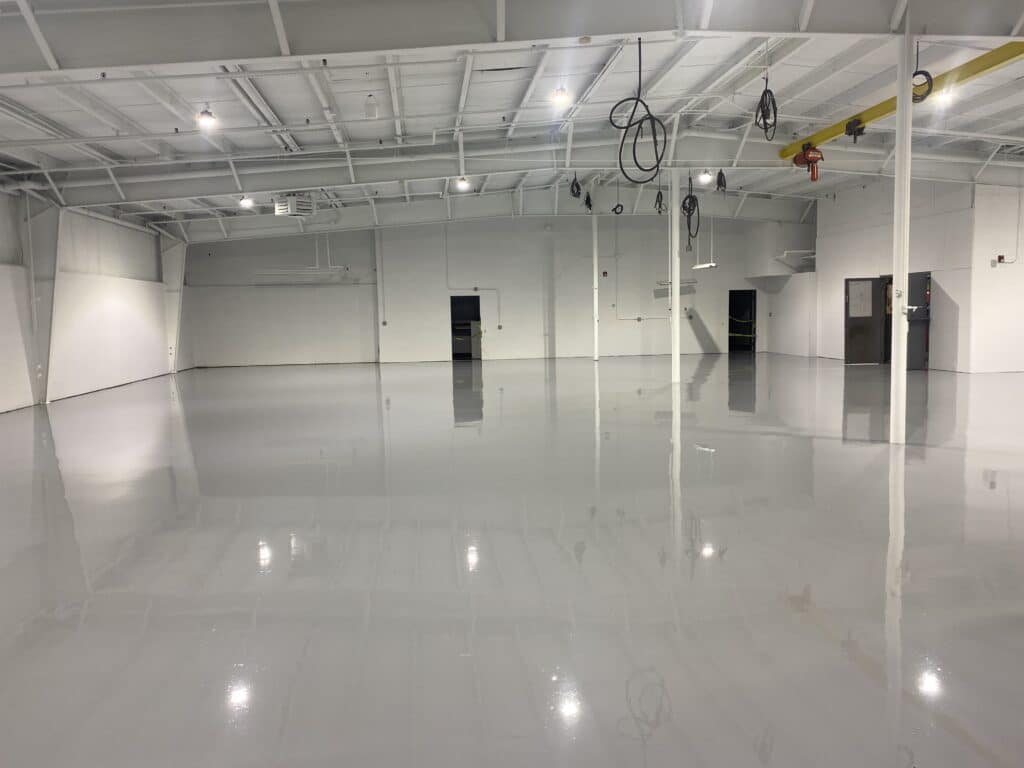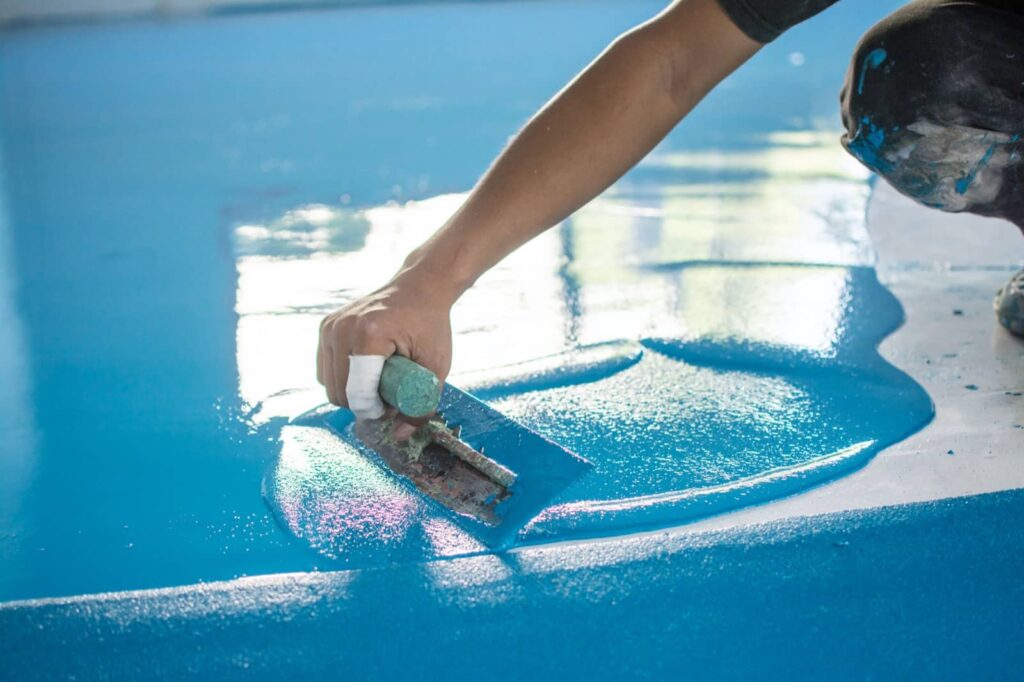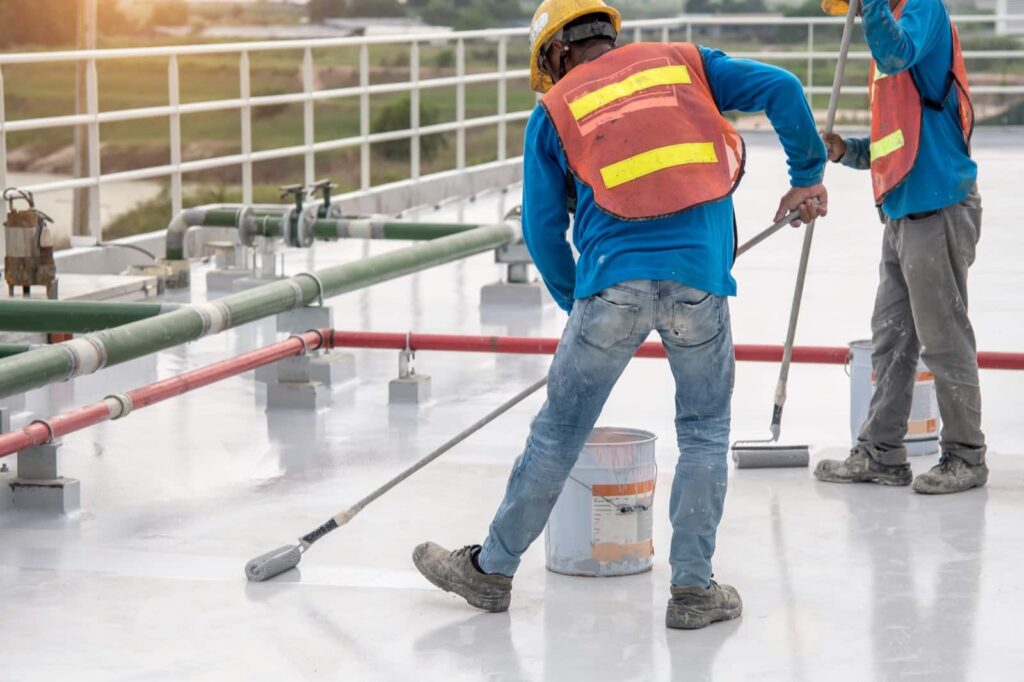5 Benefits of Epoxy Flooring in Your Warehouse
Epoxy flooring has emerged as a leading solution for warehouses. This durable coating is applied to concrete floors and turns into a hard, plastic surface, offering a blend of resilience and aesthetics that traditional warehouse floors often lack.
The unique properties of epoxy make it an ideal choice for the tough conditions commonly found in warehouses, where floors must withstand heavy traffic, impacts, and a variety of spills.
Looking beyond that, here are the top five benefits of having epoxy flooring in your warehouse.
Key Advantages of Epoxy Flooring
Epoxy flooring offers warehouses a suite of benefits that enhance both operational efficiency and the working environment. These advantages range from durability to cost savings.
1. Durability
Epoxy floors are synonymous with strength. They can withstand heavy machinery traffic and the daily wear and tear that is typical in a warehouse environment. Their resilience to impact means that not only is the concrete protected, but the floor itself remains uncompromised for a prolonged period.
2. Easy Upkeep
The seamless, non-porous epoxy surface repels stains and is straightforward to clean, as dirt and dust don’t stick to it. This leads to a safer, cleaner environment with reduced clean-up time and costs associated with that.
3. Enhanced Safety
Safety is a top priority in warehouses, and epoxy flooring checks that box with its non-slip surface. On top of that, the brightness boost provided by epoxy flooring can help visibility for an added layer of safety.
4. Professional Look
The smooth, shiny surface of a professionally applied epoxy floor will give any warehouse a clean, streamlined look, thus reflecting a professional image.
5. Long-term Cost Savings
Implementing epoxy flooring in a warehouse is an investment that pays off in the long run. Its durability extends the life of the floor, which translates to fewer repairs and replacements. The minimal upkeep requirements also contribute to cost savings.
Warehouse Epoxy Flooring Types
Each epoxy flooring type is unique, catering to the needs of different warehouse environments. Here are the main warehouse epoxy flooring types:
- Self-Leveling Epoxy: Ideal for areas with heavy traffic, this type provides a smooth, level surface and is easy to maintain.
- Epoxy Mortar Floors: The most durable option, suitable for environments that require resistance to heavy impacts and chemicals.
- Quartz-Filled Epoxy: Combines epoxy resin with quartz grains for a floor that is both decorative and slip-resistant, suitable for areas where aesthetics and functionality are important.
- Anti-Static Epoxy Floors: Designed for spaces that handle electronics or flammable materials, these floors reduce static hazards, ensuring safety for equipment and personnel.
- Epoxy Flake Floors: Features colored flake materials within the epoxy for a visually appealing, textured surface that also provides slip resistance, ideal for enhancing safety in busy areas.
Not sure which epoxy flooring is right for your warehouse? Don’t hesitate to reach out to our team at McLean Company. Our experts specialize in epoxy flooring solutions and can help you choose the perfect option tailored to your specific needs. Call us at 978-774-4330.
Epoxy Flooring Installation Process
There are several key steps when installing epoxy flooring in a warehouse. Following this sequence with the proper equipment and expertise will ensure a high-quality finish that lasts.
- Preparation: It begins with a thorough surface preparation. The concrete needs to be spotless, without any spots of grease, oil, or anything else that could disrupt a smooth finish. The preparation may involve diamond grinding, shot blasting, or using a chemical cleaner.
- Priming: Once cleaned, a primer is applied. This stage is crucial for achieving optimal adhesion. Primers also help to seal any small pores on the concrete surface.
- Applying Epoxy: After priming, the epoxy is mixed and applied to the floor in a carefully controlled environment to prevent any airborne contaminants from affecting the finish.
- Curing Time: Epoxy floors require time to cure fully, which can range from a few hours to several days, depending on the product used and environmental conditions.
Following these steps, warehouse epoxy flooring provides a hard-wearing, glossy surface that stands up to heavy traffic and industrial conditions. Proper installation is crucial; otherwise, the integrity of the flooring can be compromised.
McLean Company: Commercial Epoxy Flooring Experts
For those looking to install epoxy flooring in their warehouse, choosing a reliable contractor is integral to ensuring a job well done.
McLean Company specializes in industrial-grade epoxy and urethane floor coatings, perfectly suited to the demanding environment of a commercial warehouse.
Our expertise in floor finishing services guarantees a result that combines both aesthetics and function.
Want to hear more? Reach out for a free quote on your commercial epoxy flooring project. We offer transparency, expert guidance, and no hidden costs.
Trusting McLean Company means investing in a floor that will endure the tests of time and industry.



